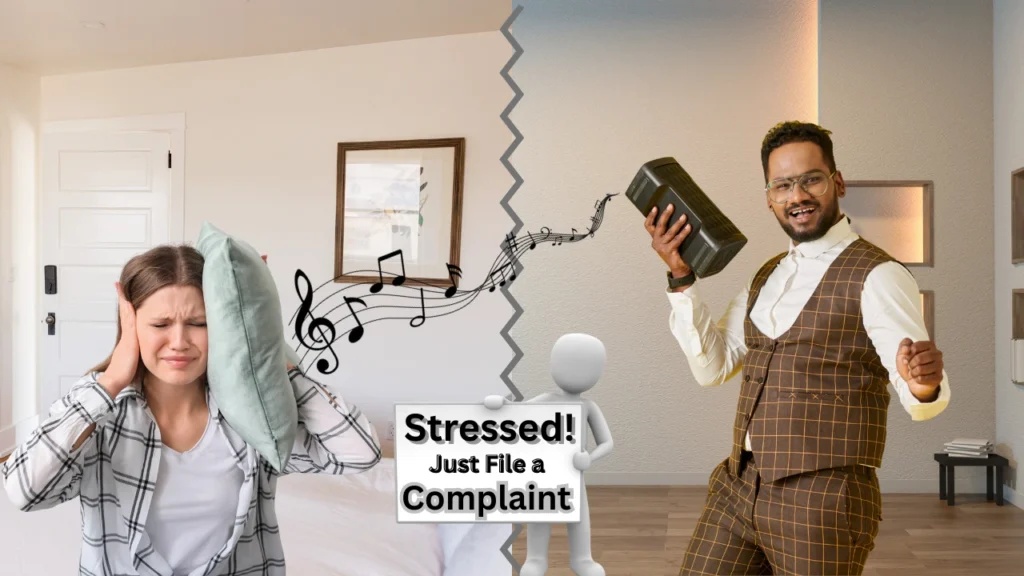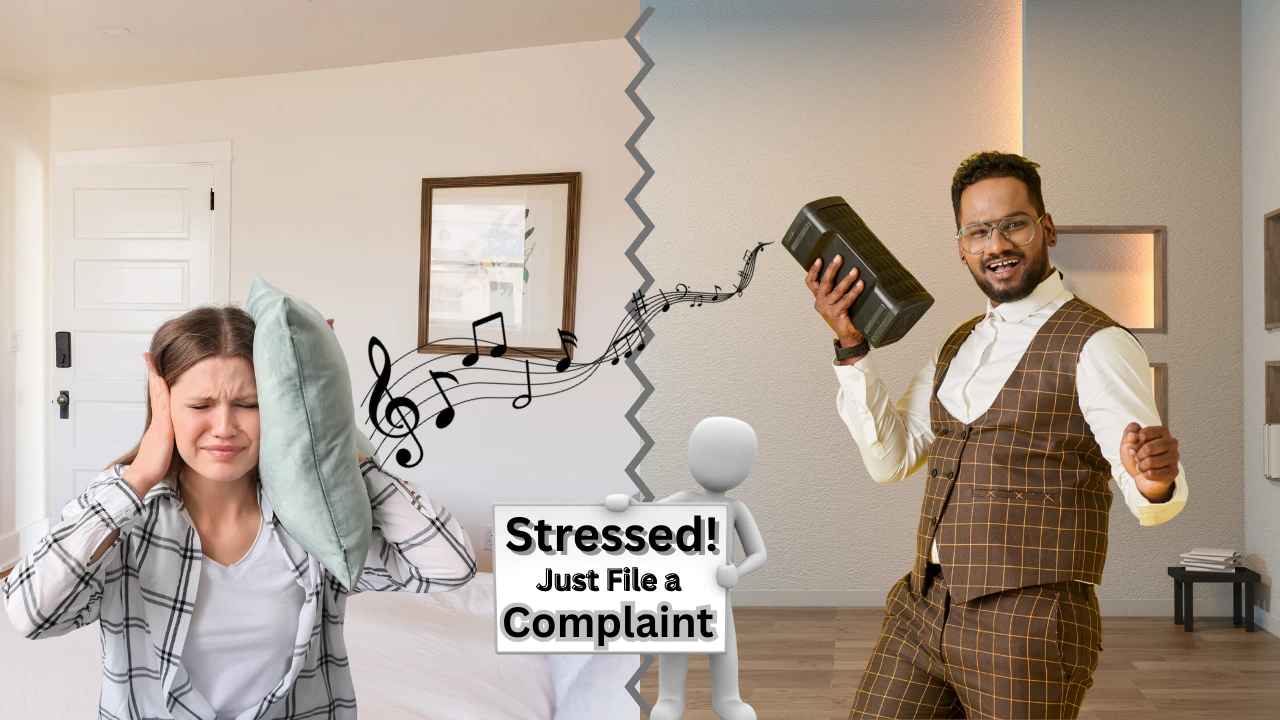What You Need to Know About Noise Complaints and Civil Suits.Noise is one of the most common sources of tension between neighbours. A barking dog, a late-night party, or the roar of a motorcycle at 6 a.m. can quickly turn what should be your peaceful home into a stressful environment. While occasional noise is basically a part of living in a community, constant or excessive disturbances can become a real problem as sometimes even serious enough to involve the law.
This blog will break down everything you need to know about noise complaints and civil suits, from understanding local ordinances to knowing your rights in court. The main aim is to provide you with practical knowledge in plain language so you feel prepared to protect your peace of mind.
What You Need to Know About Noise Complaints and Civil Suits-Overview
| Article on | What You Need to Know About Noise Complaints and Civil Suits |
| Local Laws & Ordinances | Most cities/counties set quiet hours and decibel limits |
| First Steps | Start with a respectful conversation, then a written notice with ordinance references. |
| Mediation & Authorities | Free mediation services are often available; police or animal control can step in if needed. |
| Civil Suits | Small claims court allows damages ($2,500–$7,500 in most states); civil court can order injunctions. |
| Evidence Needed | Keep noise diaries, recordings, police reports, and witness statements to strengthen your case. |
Why Noise Complaints Matter
Noise may seem like a small nuisance, but research shows it can have real health impacts. If you hear loud sounds for a long time then it can affect your sleep, concentration, and even hearing. Children living near airports or train tracks, for example, often have measurable difficulties with memory and reading.

Beyond health, noise affects your legal right to enjoy your property. This is why most cities, towns, and homeowner associations regulate noise through laws, “quiet hours,” and enforcement rules.
The Legal Basis: What the Law Says
Noise control is not governed by a single national law. Instead, it is usually a mix of state rules, local ordinances, and lease agreements. The basics are as given below:
State Policies
- Some states, like California, have declared in their health and safety codes that residents are entitled to a peaceful and quiet environment. This policy sets the tone for local rules.
Local Ordinances
- Almost every city or county has “quiet hours.” For example, loud music might be fine at 10 a.m. but not at midnight. Many ordinances also set decibel limits that vary depending on the time of day and whether the area is residential or commercial.
Tenant Rights
- Lease agreements typically include a “right to quiet enjoyment.” This means tenants can live without unreasonable noise—and landlords have a duty to enforce it. If a noisy tenant keeps disturbing others, they could face eviction.
Criminal Law
- In some places, causing loud and unreasonable noise to disturb others can even be a wrong doing, punishable by fines or short jail time.
Common Sources of Noise Complaints
Most complaints fall into a few predictable categories that are given below:
- Barking dogs that go on for hours.
- Late-night parties or gatherings.
- Loud music, TVs, or instruments.
- Motorcycles, cars, or ATVs revving in residential areas.
- Construction noise outside permitted hours.
- Constant stomping, banging, or fighting in apartments.
When to Consider a Civil Suit
This usually happens when the noise is constant, extreme, and clearly affecting your quality of life. Civil suits are based on the concept of nuisance as the idea that your neighbor’s behavior is interfering with your right to enjoy your property.
Options in Court
- Small Claims Court
- You can sue for money damages, usually capped between $2,500 and $7,500 depending on your state. People often request daily compensation ($20–$100 per day) for lost sleep or stress.
- You can sue for money damages, usually capped between $2,500 and $7,500 depending on your state. People often request daily compensation ($20–$100 per day) for lost sleep or stress.
- Regular Civil Court
- If you want the court to order your neighbor to stop the noise, you will likely need to file in regular civil court, which is more formal and may require a lawyer.
- If you want the court to order your neighbor to stop the noise, you will likely need to file in regular civil court, which is more formal and may require a lawyer.
- Evidence Matters
- If you want the court to order your neighbour to stop the noise, you will likely need to file in regular civil court, which is more formal and may require a lawyer.
Practical Challenges in Lawsuits
Even if you have a strong case, suing over noise is not always straightforward. Courts recognize that life includes a certain amount of noise like holidays, family parties, or short-term construction often won’t be taken seriously. It is the ongoing, unreasonable, and excessive disturbances that count.
Also, filing a lawsuit can be costly and may permanently strain your relationship with your neighbour. Because of this, many lawyers recommend lawsuits only as a last resort after conversations, mediation, and police involvement have failed.
Tips for Protecting Yourself
If you are dealing with noise issues, here are some key takeaways to keep in mind:
- Know Your Local Laws: Look up your city or county ordinances online or at your local library.
- Document Everything: Keep a noise diary with dates, times, and type of disturbance.
- Be Reasonable: Occasional noise is a part of community living. Focus only on disturbances that are repeated and disruptive.
- Use Mediation First: It is cheaper, quicker, and less aggressive than court.
- Go to Court Prepared: If you sue, bring solid evidence, not just complaints.
Final Thoughts
Noise disputes can be frustrating, but you don’t have to suffer in silence. The law is on your side if the disturbance is excessive and ongoing. Start with the simplest solutions like talking, warning, and mediation before turning to the authorities or filing a lawsuit.
If you do need to sue, remember that courts take nuisance claims seriously when backed by solid proof. Ultimately, the goal is not just to win money or force a neighbour into silence. It is about protecting your health, peace of mind, and the quiet enjoyment of your home.
| Home Page | https://sbbarristers.com/ |
FAQs for What You Need to Know About Noise Complaints and Civil Suits
Can I call the police for noise?
Yes, especially if the noise is ongoing. Authorities can issue warnings.
What should I do first about a noisy neighbor?
Start with a polite conversation as many people are not aware that they are causing a disturbance.
